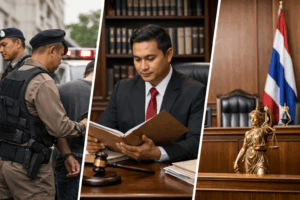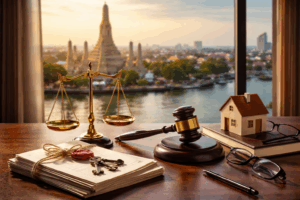In the dynamic industrial landscape of Thailand, industrial factory operators must tread carefully through the intricate maze of land use and zoning regulations. Adherence to local planning and development laws is not just a legal obligation but a strategic necessity for sustained and lawful operations. In this comprehensive guide, we will explore the critical aspects of land use and zoning regulations, shedding light on how industrial operators can thrive while staying compliant. Additionally, we’ll delve into the pivotal role of a seasoned lawyer in Bangkok in navigating these regulatory waters.
Understanding Land Use and Zoning Regulations in Thailand:
Zoning Classifications:
Residential, Commercial, and Industrial Zones: Local authorities in Thailand designate specific areas for residential, commercial, and industrial purposes. Industrial factory operators must ensure that their operations align with the zoning classification of the land they occupy.
Mixed-Use Zoning: Some areas may have mixed-use zoning, allowing for a combination of residential, commercial, and industrial activities. Understanding the nuances of these zoning classifications is essential for compliance.
Land Use Planning and Development Laws:
Master Plans: Local municipalities often have master plans that outline the intended land use and development for specific areas. Industrial operators must align their activities with these plans to prevent legal repercussions.
Development Permits: Obtaining the necessary development permits is a key step in compliance. These permits may include zoning clearances, environmental impact assessments, and other approvals depending on the nature of the industrial operations.
Building Codes and Regulations:
Structural Requirements: Industrial facilities must comply with building codes and regulations, ensuring that structures are designed and constructed to meet safety and environmental standards.
Expansion and Modifications: Any expansion or modification of existing facilities should be carried out in accordance with local regulations. Failure to obtain the necessary approvals may result in legal actions.
The Role of a Lawyer in Bangkok:
Navigating the complex landscape of land use and zoning regulations in Thailand can be challenging for industrial operators. Engaging the services of a lawyer in Bangkok is instrumental in ensuring compliance and mitigating legal risks. Here’s how legal professionals can assist:
Due Diligence and Site Assessments:
Lawyers can conduct due diligence and site assessments to evaluate the legal aspects of a chosen location for industrial operations. This includes reviewing zoning designations, land titles, and any restrictions that may impact the business.
Permitting and Approvals:
Securing the necessary permits and approvals is a critical aspect of compliance. Lawyers can guide industrial operators through the application process, ensuring all requirements are met to obtain the relevant permissions.
Zoning Variance and Appeals:
In cases where zoning classifications may pose challenges, lawyers can assist in seeking zoning variances or handling appeals to address specific concerns and ensure that the industrial operations can proceed without legal impediments.
Legal Advocacy and Dispute Resolution:
In the event of legal challenges or disputes related to land use and zoning, having a lawyer in Bangkok with expertise in dispute resolution and land use law is invaluable for protecting the interests of industrial operators.
Conclusion:
As industrial factory operators strive for success in Thailand, understanding and complying with land use and zoning regulations is paramount. Engaging the services of a knowledgeable lawyer in Bangkok is not just a precautionary measure; it is a strategic investment in the longevity and success of industrial operations in a regulatory landscape that demands vigilance and compliance.
Contact : Siam Center Law Group by calling +66(0) 2 648 5041, +66(0) 2 648 5042





